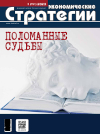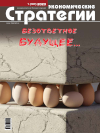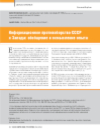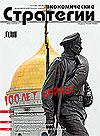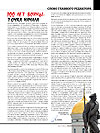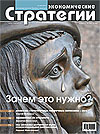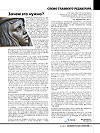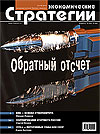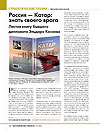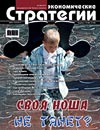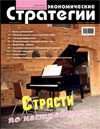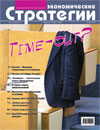World Off-roading and Global Arbitration
DOI: 10.33917/es-4.196.2024.38-45
Global dynamics can be understood only from the point of a civilizational approach and within the framework of dialectical ontology. We can observe the opposition of multidirectional civilizational leaders represented from the West by the United States and their reflexive accompaniment in favour of a unipolar world on the part of England, as well as a group of satellites. On the East side, they are represented by Russia and forward-looking China, cautious India and wise Iran, some bold candidates for allies in the noble cause of building a multipolar world.
References:
1. Anisimov O.S. Gegel’: myshlenie i razvitie [Hegel: Thought and Development]. Moscow, 2000.
2. Anisimov O.S. Razvitie myshleniya v kommunikatsii i nemetskaya klassicheskaya filosofiya [Development of Thinking in Communication and German Classical Philosophy]. Myshlenie stratega: model’nye syuzhety, vyp. 57, Moscow, 2019.
3. Anisimov O.S. Gegel’ i myslitel’nyy potentsial metodologii [Hegel and Mental Potential of the Methodology]. Vol. 1–2, Moscow, 2023.
4. Marks K., Engel’s F. Sochineniya [Writings]. Vol. 46, part 1, pp. 36–38.
5. Anisimov O.S. Tsivilizatsiya i ee mekhanizmy: stanovlenie i razrushenie [Civilization and Its Mechanisms: Formation and Destruction]. Vol. 1–2, Moscow, 2007.
6. Anisimov O.S. Istoriya i tsivilizatsiya [History and Civilization]. Ucheb. posobie, vol. 1–3, Moscow, 2020.
7. Anisimov O.S. Skhemy i skhematizatsiya: put’ v kul’turu myshleniya [Schemes and Schematization: Path to the Culture of Thinking]. Vol. 1–2, Moscow, 2007.
8. Anisimov O.S. Yazyk. Semantika. Skhemotekhnika [Language. Semantics. Circuit design]. Myshlenie stratega: model’nye syuzhety, vyp. 47, Moscow, 2017.
9. Anisimov O.S. Strategicheskoe upravlenie i gosudarstvennoe myshlenie [Strategic Management and State Thinking]. Moscow, 2006.
10. Anisimov O.S. Strateg [Strategist]. Vol. 1–3, Moscow, 2023.
11. Anisimov O.S. Absolyutnoe myshlenie [Absolute Thinking]. Myshlenie stratega: model’nye syuzhety, vyp. 55, Moscow, 2019.
12. Anisimov O.S. Dokazyvayushchaya analitika i “razumnoe” myshlenie [Evidence-Based Analytics and Smart Thinking]. Myshlenie stratega: model’nye syuzhety, vyp. 70, Moscow, 2021.
13. Anisimov O.S. Ontologiya i logika [Ontology and Logic]. Ucheb. posobie, Moscow, 2020.
14. Anisimov O.S. S chego nachat’ rost umstvennogo potentsiala? [Where to Start Increasing Mental Potential?]. Potentsial, 2023, no 2.
15. Anisimov O.S. Metodologiya na rubezhe vekov (k 50-letiyu MMK) [Methodology at the Turn of the Century (to the 50th anniversary of MMK)]. Moscow, 2004.
16. Shchedrovitskiy G.P. Izbrannye proizvedeniya [Selected Writings]. Moscow,1995.
17. Anisimov O.S. Kul’tura i dukhovnost’ v myshlenii stratega [Culture and Spirituality in the Strategist’s Thinking]. Moscow, 2012.
18. Anisimov O.S. Ideya logiki i mysletekhnika [The Idea of Logic and Thought Technology]. Myshlenie stratega: model’nye syuzhety, vyp. 46. Moscow, 2017.




